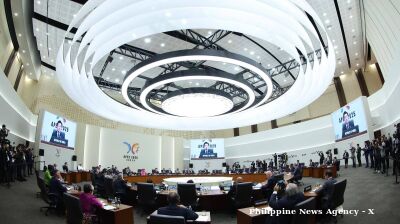Czech extremists rallied in Prague's city centre on Saturday, using the ongoing energy crisis to criticise the country's centre-right government for not doing enough to help ordinary people, as well as for aiding Ukrainians at their expense.
The protest, entitled “The Czech Republic first”, was organised by groups previously active in anti-vaccine demonstrations and attracted a crowd of 70,000, including representatives of Tomio Okamura's far right Freedom and Democracy party (SPD) and the largely unreconstructed Czech Communist Party.
Protesters’ slogans and speeches were directed against the government for the high energy prices and for allegedly giving priority to people fleeing Russian aggression in Ukraine over Czech citizens. Some also called for negotiations with Putin over cheap gas supplies. The public media, the EU, the EU's Green Deal and Nato were other frequent targets.
The protesters represented only a vocal minority of Czechs but the discontent over soaring energy prices relects a wider unrest in society that could have serious political implications this autumn, with Senate and municipal elections on September 23 and campaigning already underway for presidential elections in January. NGOs have in the past weeks been warning over the impact of rising costs of living on vulnerable parts of the population, with pensioners and low-income families struggling already.
The organisers plan another demonstration on September 28, St Wenceslas Day.
Prime Minister Petr Fiala’s cabinet won a vote of no-confidence on Friday which was initially instigated by the opposition over the controversial appointment of spy chief Petr Mlejnek, who resigned shortly before the motion, as well as over the ongoing energy crisis. Only 84 of the opposition's 92 deputies in the parliament of 200 were present for the vote, dooming it to failure.
The cabinet had to endure a 22-hour marathon session during which opposition politicians from the populist ANO party of controversial billionaire Andrej Babis and Okamura's SPD lashed out against the cabinet for mishandling the energy crisis.
Babis referred to the cabinet as “incapable of decision-making” during another of his signature erratic speeches in which he conflated several unrelated references, including a bizarre description of Viktor Orban as “a Hungarian Vaclav Havel”, into a hard-to-follow array of emotionally-charged statements.
In commenting on Saturday’s demonstration, Fiala told local media that “it shows strongly pro-Russian stances”, referring to the profiles of the organisers and speakers. These included some of the stalwarts of the anti-establishment SPD advocating a "Czexit" from the EU or contributing to the website Novarepublika, which disseminates Kremlin propaganda.
Fiala was criticised for his comments from the opposition as well as some ruling coalition politicians for failing to see that many protesters attended the rally out of genuine fears of not being able to afford the cost of heating this winter.
Martin Kuba, Governor of the South Bohemian region from Fiala’s own rightwing ODS party, called the comments “not fortunate” during a debate on CNN Prima News and pointed out the large number of votes cast for smaller non-parliamentary far right and anti-establishment parties during the general election last October.
When combined with the parliamentary SPD, the non-parliamentary far right and anti-establishment parties, including Tricolour, Free bloc and The Pledge, obtained nearly 18% of the popular vote. In addition, the Czech Communist Party, which is also very socially conservative, came just short of the 5% threshold needed to enter the parliament.
Saturday's demonstration saw many of these political affiliations unite to demand Fiala’s resignation and negotiations with Putin over cheap gas supplies.
Kuba – who is a staunch supporter of further nuclear investments and prior to the Russian invasion of Ukraine argued for Rosatom to take part in the Dukovany NPP tender – is the latest politician to pick up on the theme of general discontent in their public statements addressing the energy crisis.
Already in May the country’s controversial coal tycoon Pavel Tykac, owner of the Sev.En conglomerate, said that the country is to face large scale unrest compared to which 1989’s “Velvet Revolution was a minor rehearsal” should Czechia ban Russian gas imports.
News

US–China soybean sales restart
According to Scott Bessent, US Treasury Secretary, the agreement marks a significant step towards restoring normalcy for American farmers.

Russia faces $50bn annual losses from oil sanctions as Lukoil exits international assets
Russia is expected to lose at least $50bn annually due to oil-related sanctions, as Moscow’s largest private oil producer Lukoil agrees to sell its international assets and Germany considers nationalising operations owned by state-run Rosneft.

Chicken and chips in Seoul - for Nvidia, Samsung and Hyundai
In a low-key fried chicken shop in southern Seoul, the leaders of Nvidia, Samsung Electronics and Hyundai Motor held an informal meeting on the evening of October 30.

Presidents Lee and Xi begin diplomatic chapter at APEC summit
President Lee, who is chairing the first session of the summit at the Hwabaek International Convention Centre, stood at the entrance to personally welcome participants. President Xi reached the venue at approximately 10:02.




